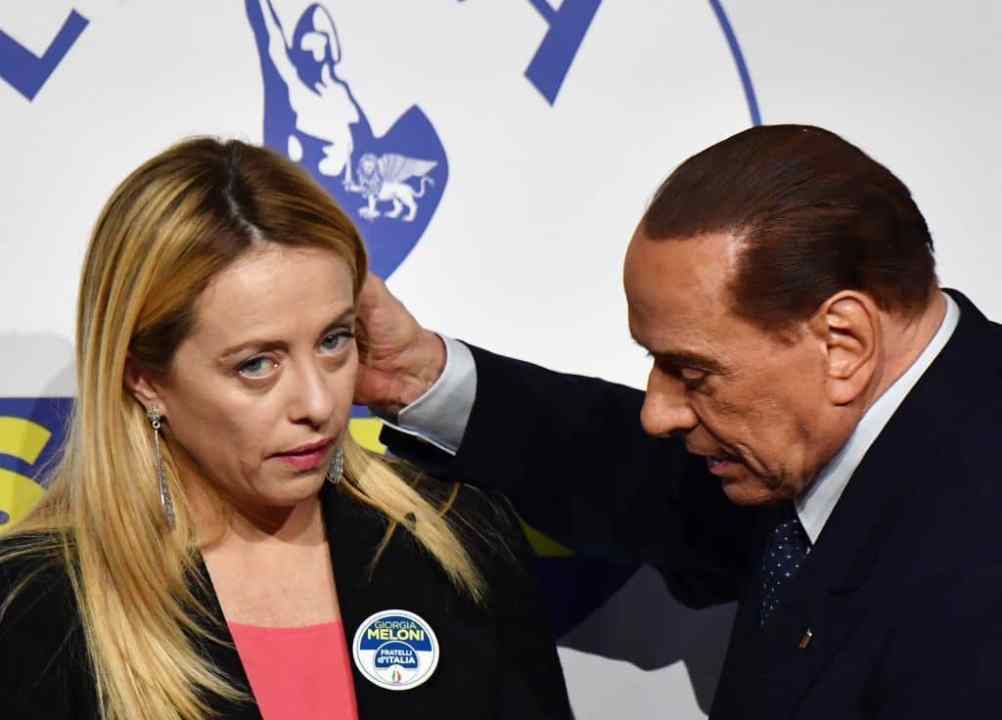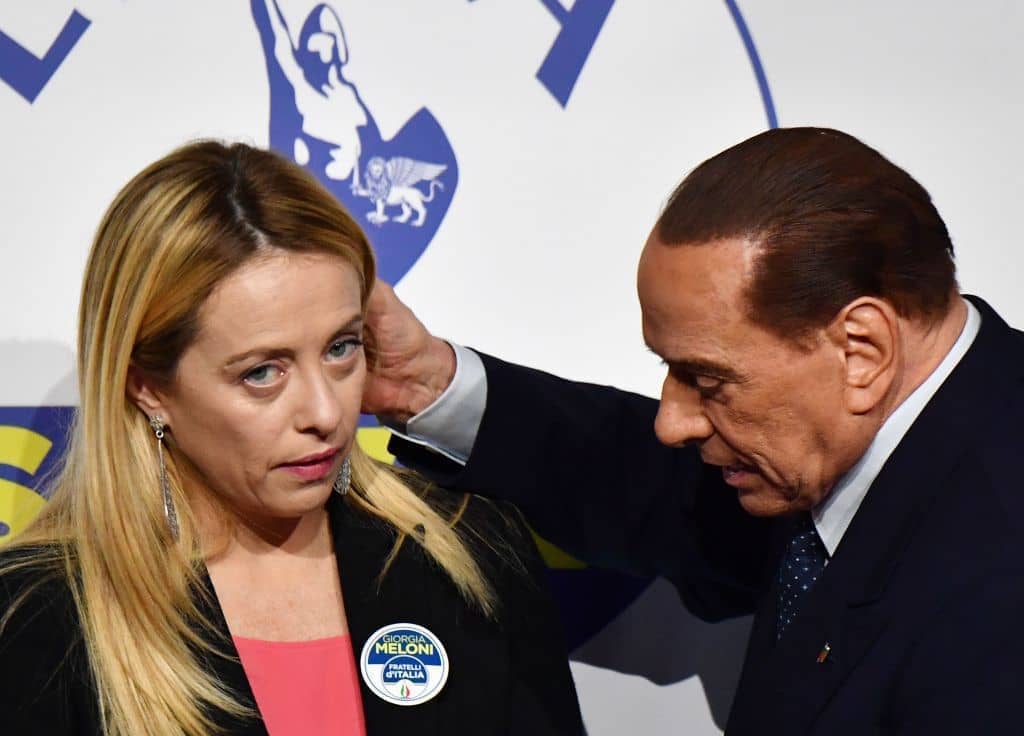Now it’s official: if the right-wing coalition wins Italy’s election, Giorgia Meloni will almost definitely be prime minister. Earlier this week, the three leaders of the coalition, herself, Matteo Salvini, and Silvio Berlusconi, agreed to formalise the principle that whoever’s party won the most votes would get to choose who ascends to the premiership. Meloni’s Brothers of Italy (Fdl) has a significant lead over any other right-wing party in the polls, and has done so for the entirety of this year.
This kind of commitment will be very difficult for Salvini and Berlusconi to back out of, even if they wanted to. The only alternative they have at their disposal if they did want to stop Meloni from becoming prime minister would be to formally merge their parties.
However, aside from the numerous issues both leaders would face in convincing their parliamentarians and members to go along with it, even this might not work. The latest aggregate figures from Politico’s poll of polls show Lega and Forza Italia with a combined vote share of 21 per cent, behind FdI’s 23 per cent. Lega and Forza Italia are also going backwards in the polls, and have lost vote share since they played a key role in ending Mario Draghi’s government last week. If anything, they are becoming weaker within the coalition, rather than stronger.
Meloni’s political instincts are proving to be sharper than those of her rivals
Lega’s campaign hasn’t gotten off to a great start, after La Stampa published a story alleging that a confidante of Salvini within the party had secretly been in contact with a Russian embassy official in May. The story goes on to claim that this official asked whether Lega would continue to support Draghi’s government. We’re not sure that this will necessarily lead to much electoral blowback for Salvini or Lega. Salvini’s past closeness to Russia isn’t exactly a state secret, and we don’t see much evidence that his voters will care. Franco Gabrielli, who is responsible for intelligence services within Draghi’s cabinet, has also denied that the documents La Stampa had access to came from the services. But it does mean that Salvini has to spend this crucial early phase of the campaign firefighting, rather than setting out his stall.
Meloni’s political instincts are proving to be sharper than those of her rivals. Knowing that Salvini and Berlusconi could try to play games further down the line, she cut off that possibility by pre-emptively forcing them to take a line and stick to it. That worked, and she is now in a much stronger position, as the right-wing coalition’s de facto prime minister candidate.
But it is especially unedifying for Berlusconi, who was more hesitant about formalising the unwritten rule than Salvini. For him, it also signals a significant loss of power within the right, and a long process reaching its conclusion.
Across Europe, centre-right parties have tried to find various ways of dealing with their far-right challengers. A common approach has been that of the Moderate party in Sweden and, increasingly, the PP in Spain: trying to keep distance from the far-right, but having to give in eventually. Berlusconi was never like this. From the beginning, he tried to co-opt them, by bringing the neo-Fascist Italian Social Movement, or MSI’s, successor, the Alleanza Nazionale, into his electoral alliance in 1994.
The result was a transformation of Italy’s politics. Before Berlusconi, governing coalitions sprawled across the political centre. Instead of fighting each other, the centre-right and centre-left parties combined to keep out the communists on the left and the MSI on the right. A few years before Berlusconi rose to prominence, this grand coalition, the pentapartito, fell apart.
When Berlusconi picked up the pieces, he presided over a marriage of convenience between some of the centre-right elements of that grouping, and the far-right in the form of the AN, plus Lega. The result was a new era of bipolarity in Italian politics, where elections would be fought between left and right-wing factions.
Berlusconi sought to use the far-right, as well as Eurosceptic talking points, to his advantage. But now he has found himself swallowed up by the far-right. There’s an irony that the final blow was delivered by the kind of manoeuvring that, at the height of his powers, Berlusconi himself was a specialist in.
This article was first published in the EuroIntelligence morning briefing. For a trial subscription click here.







Comments